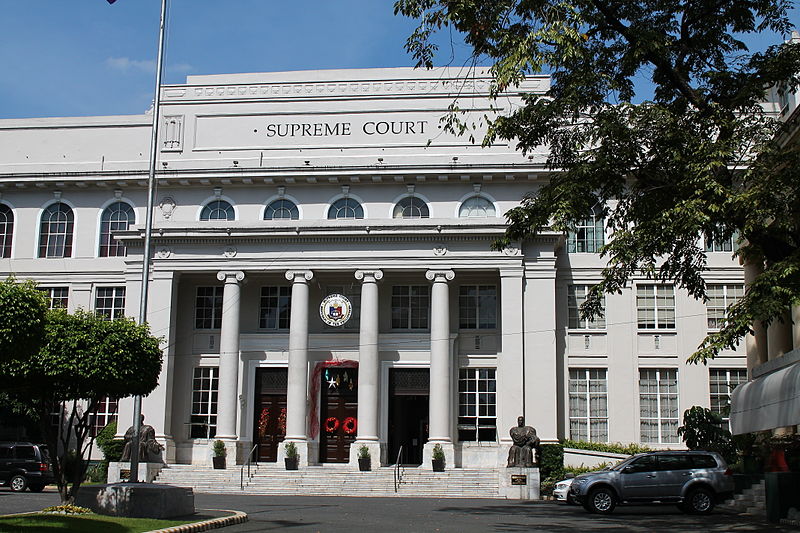Philippine News
SC asked to clarify TRO vs. gov’t policy on power industry competition

(Photo By Aerous – Own work, CC BY-SA 3.0)” width=”800″ height=”533″ />
The SC issued a TRO on February 27, 2017 enjoining the implementation of the RCOA policy stipulated in Circular DC2015-06-0010 issued by the Department of Energy (DOE) in 2015 and Resolutions 5, 10, 11 and 28 issued by the Energy Regulatory Commission (ERC) in 2016. (Photo By Aerous – Own work, CC BY-SA 3.0)MANILA — Partylist group Bayan Muna on Tuesday asked the Supreme Court to clarify whether the anti-monopoly provisions of the retail competition and open access (RCOA) policy of the government on the power industry are included from the temporary restraining order (TRO) it has issued against such measure.
The SC issued a TRO on February 27, 2017 enjoining the implementation of the RCOA policy stipulated in Circular DC2015-06-0010 issued by the Department of Energy (DOE) in 2015 and Resolutions 5, 10, 11 and 28 issued by the Energy Regulatory Commission (ERC) in 2016.
The TRO was issued based on the petitions filed by the PCCI, Ateneo de Manila University, San Beda College (Alabang) and mall owner Riverbanks Development Corp.
The petitions questioned the constitutionality of the RCOA as insofar as it requires big power consumers to source their electricity supply from any of the 23 retail electricity suppliers (RES) designated by ERC.
The PCCI argued that the RCOA has violated the basic constitutional right to freedom of choice of electricity consumers as it deprived them of right to choose RES outside ERC’s listed firms.
In a 31-page intervention petition, Bayan Muna chairman Neri Javier Colmenares sought the Court’s clarification that the TRO does not cover the provisions not assailed in the original petition filed by the Philippine Chamber of Commerce and Industry (PCCI) seeking the stop the implementation of the RCOA policy which was supposed to be implemented by the Department of Energy (DOE) and Energy Regulatory Commission (ERC) in the power industry.
The petitioner recounted that on December 27, 2016, PCCI filed a petition seeking to declare null and void the DOE order and ERC resolutions implementing the mandatory migration of contestable customers from Meralco to other electricity suppliers.
It noted that in the said petition, PCCI did not assail all the provisions of the RCOA but only certain sections of it.
However, the TRO issued by the SC covers DOE Circular DC2015-06-0010, Series of 2015, and ERC Resolutions 5, 10, 11 and 28, Series of 2016, thus, practically restraining the entire RCOA.
The said circular and resolutions were issued to fully implement the RCOA.
Due to the TRO, the petitioner said the ERC has not even issued licenses to small companies applying fro RES, thus, giving Meralco’s MPower and other RES already licensed, the advantage, as they alone are allowed to transact business with the contestable customers.
“Due to the TRO, there’s a ‘chilling effect’ in the implementation of the DOE and ERC resolutions. The sweeping TRO, wittingly or unwittingly, has given monopolies like Meralco the advantage, as potential contestable customers remain captive under its monopoly for fear they may be violating the TRO,” Bayan Muna explained.
The petitioner argued that the implementation of the TRO on the entire provisions of the RCOA, including those which were not questioned, “is without legal or constitutional basis.”
“The TRO has put on hold, wittingly or unwittingly, a number of provisions, which are unrelated to the issue raised in the petition, to the extreme advantage of Meralco,” the group insisted.
“Hence, the need to modify the issued TRO,” it added.





















